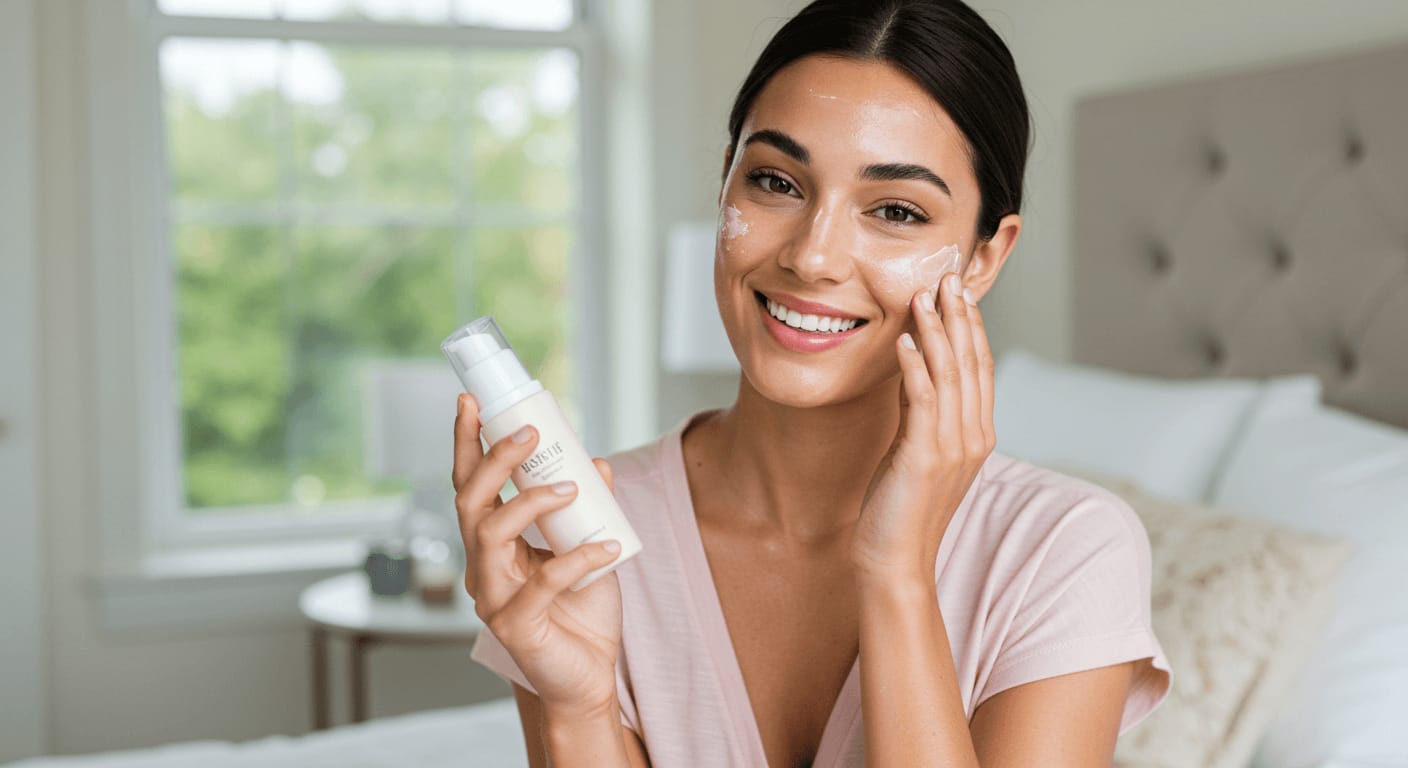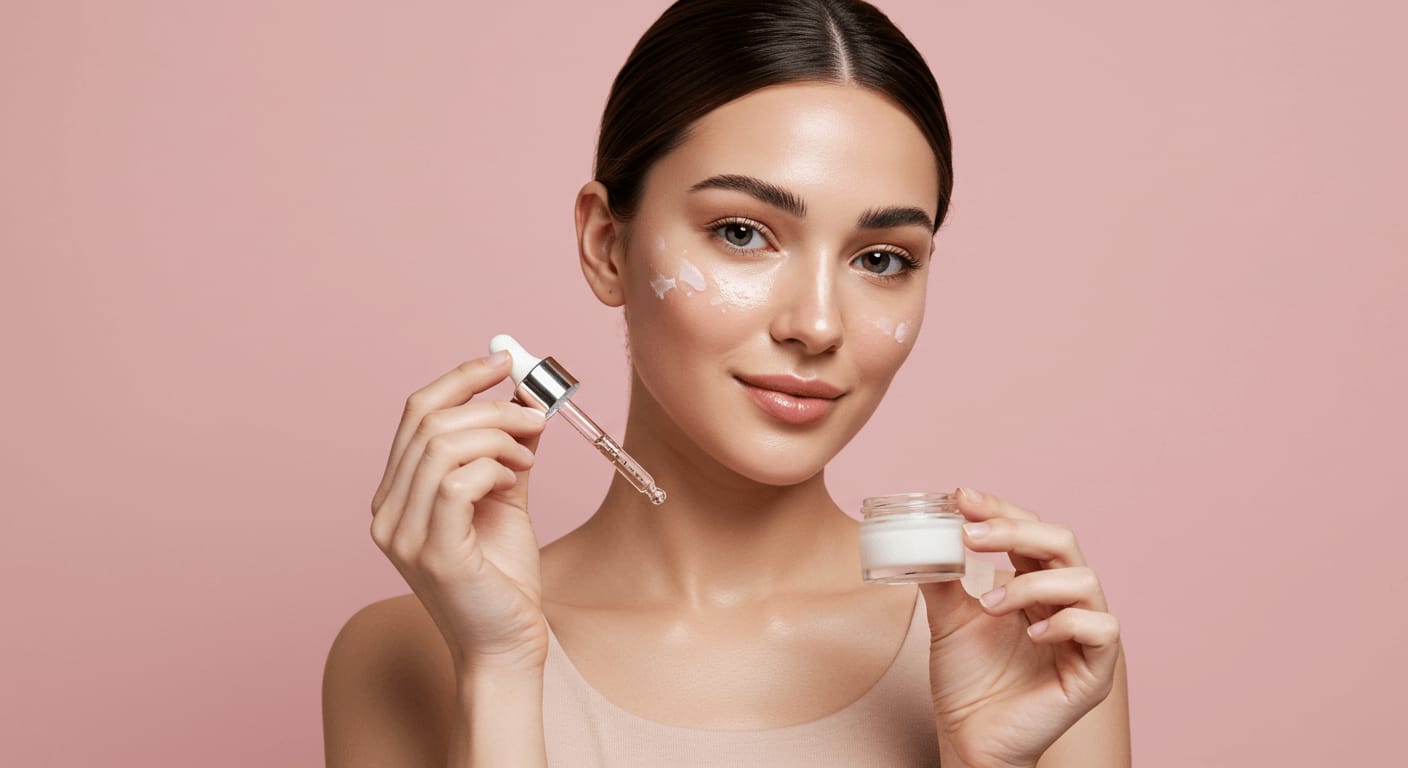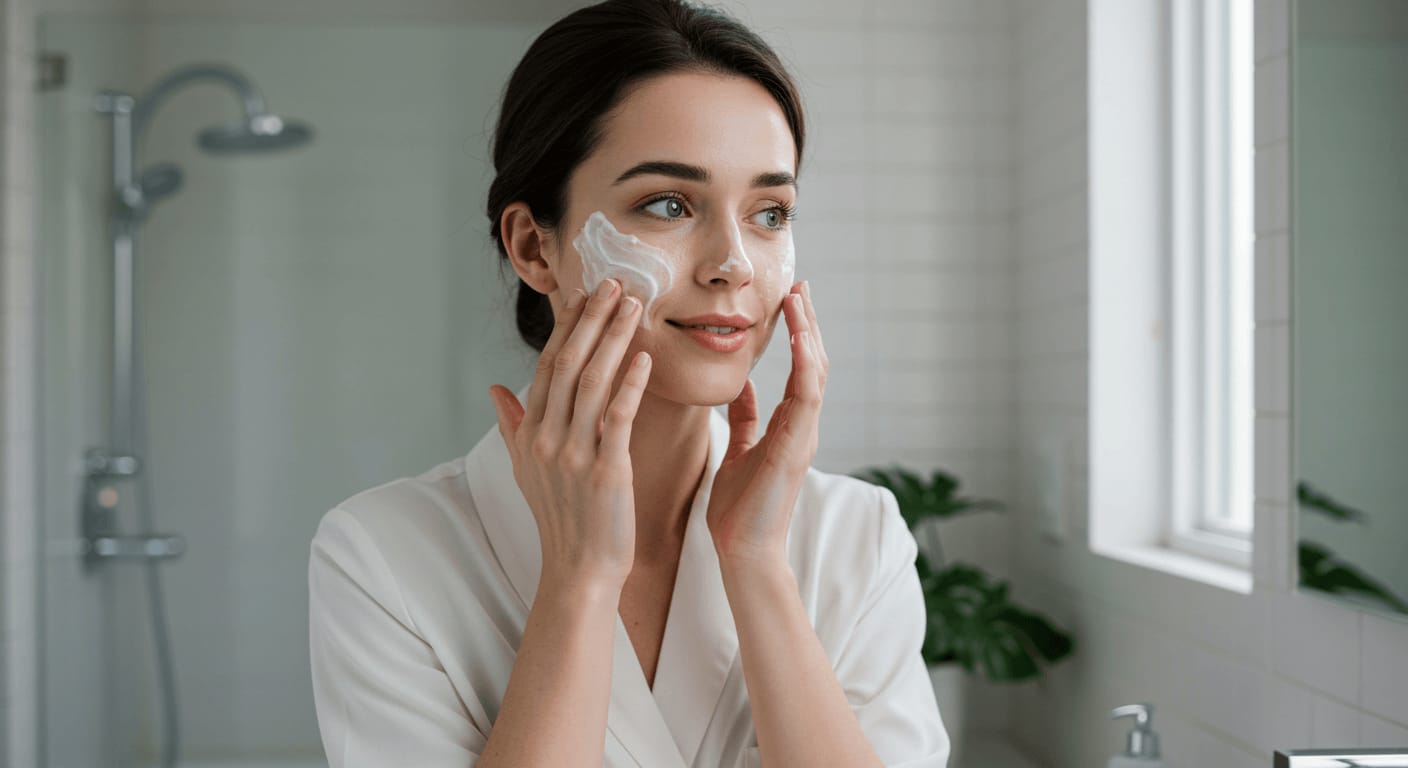Your skin deserves all the love and attention you can give it! Soft, smooth skin not only makes you feel great, but it also boosts your overall confidence. In this guide, you’ll discover effective techniques and simple tips to keep your skin moisturized, protected, and glowing. From choosing the right products to incorporating healthy habits into your routine, you’ll learn how to achieve that enviable softness while avoiding common pitfalls. Let’s launch on this delightful journey towards achieving your best skin yet!
Table of Contents
Key Takeaways: The Ultimate Guide to Body Care – How to Keep Your Skin Soft
- Hydration: Staying hydrated is crucial for maintaining soft skin. Drink plenty of water daily to help keep your skin moist and supple.
- Moisturizer: Use a quality moisturizer suited for your skin type. Applying it regularly, especially after showering, can help lock in moisture.
- Gentle Cleansing: Opt for gentle, non-stripping cleansers that will not damage your skin barriers. Avoid harsh soaps that can lead to dryness.
- Exfoliation: Regularly exfoliate your skin to remove dead skin cells. This promotes cell turnover and helps in achieving a softer texture.
- Sun Protection: Using a broad-spectrum sunscreen can protect your skin from UV damage, which can lead to dryness and other skin issues.
- Balanced Diet: Incorporate a diet rich in antioxidants and healthy fats. Foods containing vitamins C and E can promote skin health from within.
- Routine: Establish a consistent body care routine for long-term benefits. Stick to your regimen to see lasting improvements in skin softness.
Understanding Your Skin
To truly master your body care routine, it’s necessary to understand your skin. Your skin is not just a protective barrier; it’s also a reflection of your overall health and lifestyle. Factors such as genetics, environment, and age play significant roles in determining how your skin looks and feels. By recognizing these elements, you can tailor your skin care approach and make it more effective for your specific needs.

How to Identify Your Skin Type
Assuming you want your skin to glow, the first step is identifying your skin type. Start by observing how your skin behaves throughout the day. Is it oily, dry, or a mix of both? You can perform a simple test at home: cleanse your face and leave it bare for about an hour. Afterward, check for shine on your forehead, nose, and chin, which might indicate an oily skin type, or tightness and flakiness, suggesting dryness. Combination skin will have features of both, while normal skin feels comfortable and balanced.
Tips for Choosing the Right Products
An effective skin care routine begins with choosing the right products for your skin type. To do this, look for products that specifically target your concerns. For oily skin, choose oil-free or non-comedogenic formulas that won’t clog your pores. Dry skin, on the other hand, benefits from rich moisturizers and nourishing serums. Additionally, sensitive skin requires gentle, fragrance-free products to avoid irritation.
- For oily skin, opt for oil-free cleansers.
- Choose hydrating products for dry skin types.
- Look for fragrance-free options if you have sensitive skin.
Knowing your skin type will guide you in selecting products that not only enhance your skin’s vitality but keep it healthy too.
Products play a pivotal role in ensuring your skin stays soft and rejuvenated. It’s worth investing time to read labels, as many are packed with unnecessary additives that may cause more harm than good. Instead, focus on ingredients that are beneficial for your skin type. Generally, look for natural components like aloe vera, hyaluronic acid, and vitamin E for hydration. Avoid harsh additives and fragrances which can aggravate skin conditions.
- Look for natural ingredients like aloe vera for hydration.
- Avoid products with harsh additives for sensitive skin.
- Seek out hydrating components like hyaluronic acid.
Knowing the right products to choose can significantly enhance your body care routine, allowing you to achieve that soft, radiant skin you desire.
Daily Skin Care Routine
Assuming you want to maintain that soft, radiant skin that everyone admires, establishing a daily skin care routine is vital. The secret lies in consistency and the right products tailored to your skin type. Whether your skin is oily, dry, or combination, your routine should include cleansing, moisturizing, and protection from environmental stressors. You’ll find that dedicating just a few minutes each day can lead to remarkable improvements in the texture and appearance of your skin.

How to Properly Cleanse Your Skin
One of the most important steps in your skin care routine is cleansing. You should start with a gentle cleanser suited for your skin type to effectively remove dirt, oil, and impurities without stripping your skin of its natural oils. It’s vital to cleanse both morning and night—this ensures that you are starting your day fresh and removing all the toxins that accumulate overnight. Apply your cleanser in a circular motion and rinse thoroughly with lukewarm water. Avoid using hot water as it can be too harsh and dry out your skin.
Tips for Moisturizing Effectively
Skin that is well-hydrated not only feels comfortable but also looks supple and youthful. To achieve this, you should choose a moisturizer that fits your skin type, whether it’s gel-based for oily skin or creamier for dry skin. Apply your moisturizer while your skin is still a bit damp after cleansing; this helps to lock in moisture effectively. Using a little product can go a long way, so focus on evenly distributing it across your face and neck.
- Choose the right moisturizer for your skin type
- Apply while damp to lock in hydration
- Use sparingly to avoid greasiness
Skin hydration doesn’t stop with just your face; it’s important to extend it to your entire body. Make sure to apply lotion after showering for maximum absorption. You can also consider using a humidifier in your living space during dry seasons, as this can add moisture to the air and benefit your skin’s overall hydration. A consistent daily routine can prevent extreme dryness and promote a healthy skin barrier.
- Don’t forget your body, apply lotion everywhere
- Consider using a humidifier during dry seasons
- Stay hydrated and drink plenty of water
Knowing the right products and techniques for cleansing and moisturizing your skin will set you on the path to achieving that soft skin you desire.
Another layer to effective skin care involves awareness of your environment and lifestyle choices. Factors such as diet, sun exposure, and stress levels can significantly impact your skin’s health. Aim for a balanced diet rich in vitamins and antioxidants, apply a broad-spectrum sunscreen daily, and engage in stress-relieving activities. Each of these adds positive energy to your skin care routine.
Seasonal Skin Care
Now that you understand the importance of seasonal skin care, it’s time to focus on how to adapt your routine for different weather conditions. Your skin is constantly facing environmental changes, from the dry air of winter to the humidity of summer. Each season brings unique challenges, and adjusting your products and habits accordingly will help maintain your skin’s health. For instance, during the chilly months, you should opt for heavier creams that provide deep hydration and protect your skin barrier, while in the warmer months, lightweight gels or oil-free moisturizers can keep your skin hydrated without feeling greasy.

How to Adapt Your Routine for Different Weather
For summer, one of the best ways to care for your skin is by choosing products with SPF to protect against sun exposure while also incorporating a gentle exfoliation routine to remove buildup and promote a fresh glow. On the other hand, in winter, you might want to switch to a more nourishing body lotion that soothes and locks in moisture, as the colder temperatures tend to sap your skin’s natural hydration. Paying attention to these shifts and making the right adjustments can enhance your skin’s appearance and prevent seasonal dryness or oiliness.
Tips for Protecting Your Skin Year-Round
Skin protection should be an imperative part of your daily routine regardless of the season. Simple strategies can help you fend off environmental stressors and keep your skin looking its best throughout the year. Make sure to wear sunscreen every day, even on cloudy days, as UV rays can penetrate through the clouds. Staying hydrated and nourishing your body with a balanced diet filled with vitamins can also significantly improve your skin’s resilience. To enhance your day-to-day protection, consider these tips:
- Apply a broad-spectrum SPF of at least 30 daily.
- Stay hydrated by drinking plenty of water throughout the day.
- Incorporate a daily moisturizer suited to your skin type.
- Wear protective clothing when spending extended periods outdoors.
- Adjust your shower temperature to be warm rather than hot to avoid drying out your skin.
This simple yet effective list can help ensure your skin remains protected against the elements, no matter the season.
A routine that combines these habits with your personalized skin care products can lead to long-term benefits. With regular application of a quality moisturizer and diligent use of sun protection, your skin will remain resilient and radiant. Embrace these practices for an all-year-round glow. This lifestyle will help your skin withstand any weather change while promoting softness and vitality.
- Use a gentle cleanser to avoid irritation.
- Look for ingredients like hyaluronic acid or ceramides.
- Incorporate antioxidant-rich products into your routine.
- Limit exposure to chlorine and harsh soaps.
- Schedule regular visits with a dermatologist if needed.
This approach to skin care will empower you to take control of your skin’s health in any season.
Nutrition and Hydration
Not only does what you put on your skin matter, but so does what you put in your body. Proper nutrition and hydration play a significant role in keeping your skin soft and vibrant. When you nourish your body with the right foods, you give it the tools to repair and rejuvenate itself from the inside out. Your skin cells thrive on vitamins, minerals, and antioxidants that can help maintain their elasticity and moisture levels. Ensuring you eat a balanced diet filled with a variety of fruits and vegetables can make a noticeable difference in your skin’s appearance.

How to Incorporate Foods for Healthy Skin
Foods rich in omega-3 fatty acids, such as fish, walnuts, and flaxseeds can do wonders for your skin’s hydration and softness. Incorporating bright fruits and vegetables like blueberries, carrots, and spinach, which are packed with vitamins A, C, and E, also supports collagen production and fights off free radicals. Combine these nutrient-dense options into smoothies, salads, or snacks throughout your day. Not only are these choices delightful, but they will actively work to enhance your complexion.
Tips for Staying Hydrated
With hydration being vital for maintaining your skin’s moisture barrier, it’s vital to drink enough water daily. Aim to consume at least eight 8-ounce glasses of water throughout the day, but you might need more if you’re active or live in a dry climate. Keeping track of your intake through a water bottle or hydration app can help you stay on track. You can also enhance hydration by eating foods with high water content like cucumbers, oranges, and watermelon, which double as refreshing snacks.
- Drink enough water daily
- Incorporate high-water-content fruits and vegetables
- Usage of hydration apps or reminders
This simple habit can lead to a glowing, plump complexion. Hydrated skin not only looks better but also feels better, helping to prevent dryness and irritation. Make it a point to keep a water bottle with you at all times, and consider herbal teas or other low-calorie beverages if you want variety.
- Keep a water bottle handy
- Add herbs to tea for flavor
- Set reminders to drink water
Hydrated skin reflects your overall health, making it an integral part of your body care routine. This will not only enhance your appearance but also fortify your skin’s resilience against daily challenges. Make hydration a priority, and enjoy the benefits of softer and more supple skin.
Common Skin Issues
Unlike smooth, radiant skin, many individuals deal with various skin issues that can disrupt their beauty routines and affect their confidence. These common problems include dryness, irritation, acne, and breakouts. Understanding what triggers these ailments is the first step toward achieving the healthy skin you desire. Each skin concern requires specific attention, but with the right knowledge and care, you can easily overcome these obstacles.

How to Tackle Dryness and Irritation
Assuming you struggle with dryness and irritation, it’s imperative to adjust your skincare routine accordingly. Start by incorporating a gentle, hydrating cleanser into your regimen, as harsh ingredients can strip your skin of its natural oils. Following this, opt for a rich moisturizer with ingredients like hyaluronic acid or glycerin to lock in moisture and soothe irritation. Additionally, consider using a humidifier in your living space to combat environmental factors that contribute to dry skin.
Tips for Treating Acne and Breakouts
Treating acne and breakouts can feel overwhelming, but with the right strategies, you can minimize their impact on your skin. Focus on a daily skincare regimen that includes a gentle exfoliant—ideally one with salicylic acid—to help clear up clogged pores. Moreover, incorporate non-comedogenic products into your makeup and skincare lines to avoid clogging your pores further. Keeping your skin clean and avoiding touching your face can significantly reduce the occurrence of new blemishes.
- Exfoliate regularly
- Hydrate your skin
- Use oil-free products
- Avoid picking at your skin
The steps you take today can lead to noticeable improvements in your skin clarity over time. Consistency is key when it comes to treating acne and breakouts. By adhering to a routine and making informed product choices, you’ll be able to enjoy a healthier, more radiant complexion.
- Prioritize proper cleansing
- Consider professional treatments
- Be patient with your results
The journey to clearer skin is one that takes dedication and time, but you’ll reap the rewards as your complexion begins to improve. Focus on nourishing your skin from within, and take care of your body as you work towards your skincare goals.
Lifestyle Factors
Once again, the way you live your life can significantly impact the softness of your skin. From the food you eat to how much you move each day, various lifestyle factors play a role in maintaining a healthy complexion. Here are a few key aspects to consider:
- Hydration – Drink plenty of water.
- Nutrition – Incorporate vitamins and minerals into your diet.
- Exercise – Engage in regular physical activity.
- Stress Management – Find healthy ways to cope with stress.
This holistic approach to your lifestyle can lead to healthier, more supple skin. Paying attention to these elements can truly make a difference in how your skin feels and looks.

How to Manage Stress for Better Skin
You may not realize this, but high-stress levels can have a profound impact on your skin’s health, potentially leading to issues such as dryness or breakouts. To manage stress effectively, consider adopting practices such as mindfulness, yoga, or deep-breathing exercises. These methods can help you create a sense of calm and balance, allowing your skin to reflect that inner peace.
You can also enhance your stress management by engaging in hobbies, spending time with loved ones, or immersing yourself in nature. These positive activities can significantly lower your stress hormones, which in turn supports smoother and healthier skin. Take the time to explore what helps you personally de-stress and incorporate it into your routine.
Tips for Sleep and Skin Health
Little things you do before bed can significantly affect your skin. Prioritize a good night’s sleep because it facilitates repair and rejuvenation. Here are some helpful tips to ensure quality sleep for maintaining your skin:
- Consistent Sleep Schedule – Go to bed and wake up at the same time each day.
- Bedtime Routine – Establish a calming pre-sleep routine.
- Comfortable Environment – Ensure your sleeping area is dark, quiet, and at a comfortable temperature.
- Limit Screen Time – Avoid screens at least an hour before sleep.
Assume that you prioritize these practices, and as a result, your skin will thank you for it! Quality sleep is a game-changer when it comes to achieving that soft, radiant complexion.
Skin health and sleep are inextricably connected. Your body goes into repair mode while you sleep, making it ideal for nourishing your skin. Consider the following tips to enhance your beauty sleep:
- Invest in Good Quality Bedding – Choose breathable fabrics that are easy on the skin.
- Stay Hydrated Before Bed – Drink a glass of water, but avoid too much liquid just before sleep.
- Use Night Creams – Apply nourishing creams to support overnight healing.
- Limit Caffeine – Avoid coffee or energy drinks in the evening.
Assume that by implementing these strategies, you will noticeably improve your skin’s health, enhancing its softness and texture.
Conclusion
Drawing together all the insights shared in this guide, you now possess the tools to keep your skin feeling soft and looking radiant. By adopting a well-rounded body care routine that includes gentle exfoliation, hydration, and sun protection, you can enjoy the benefits of smooth, glowing skin. Taking time to pamper yourself isn’t just about aesthetics; it’s about fostering a sense of well-being and self-care that extends beyond your skin. Always listen to your body’s needs and adjust your routine accordingly to ensure that your skin stays in its best shape throughout the year.
If you’re eager to dive deeper into body care techniques and products that cater to your unique skin type, check out The Ultimate 101 Guide to Body Care. This resource will help you fine-tune your approach to body care, making it even easier to achieve that soft, healthy skin you desire. Here’s to embracing your perfect body care routine—you’ve got this!
FAQ:
Q: What are the important steps in a daily skincare routine?
A: A daily skincare routine typically includes cleansing, toning, moisturizing, and applying sunscreen. Start by cleansing your face with a gentle cleanser to remove dirt and impurities. After cleansing, apply a toner to help balance your skin’s pH. Follow up with a moisturizer suitable for your skin type to keep it hydrated. Lastly, applying sunscreen is vital to protect your skin from harmful UV rays.
Q: How often should I exfoliate my skin?
A: Exfoliation is important to remove dead skin cells and promote cell turnover. For most skin types, exfoliating 1-3 times a week is appropriate. However, it’s important to consider your skin type; those with sensitive skin may prefer exfoliating once a week, while oilier skin types might benefit from more frequent exfoliation. Always choose a gentle exfoliant to avoid irritation.
Q: What ingredients should I look for in moisturizers for soft skin?
A: When selecting moisturizers, look for ingredients that promote hydration and nourishment. Key ingredients to seek out include hyaluronic acid, glycerin, shea butter, and ceramides. These ingredients help attract moisture to the skin, maintain hydration levels, and create a protective barrier. Additionally, consider ones that contain antioxidants like vitamin E for overall skin health.
Q: Are there dietary considerations that can help improve my skin’s softness?
A: Yes, a balanced diet plays a significant role in skin health. Incorporate foods rich in omega-3 fatty acids, such as walnuts and flaxseeds, as they help maintain skin elasticity. Fruits and vegetables high in vitamins C and E, like citrus fruits and leafy greens, can also improve skin texture. Staying hydrated by drinking plenty of water is equally important to keep your skin supple and soft.
Q: How can I protect my skin from environmental damage?
A: To safeguard your skin from environmental damage, incorporate antioxidants into your routine, which can help neutralize free radicals. Utilize a broad-spectrum sunscreen with an SPF of at least 30 daily to defend against UV rays. Additionally, consider wearing protective clothing and seek shade when the sun is at its peak. Cleansing your skin thoroughly at the end of the day is also important to remove pollutants that can cause damage.



























0 Comments